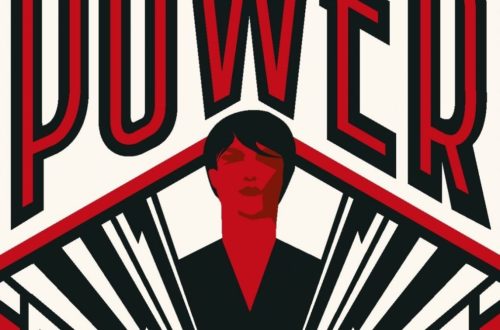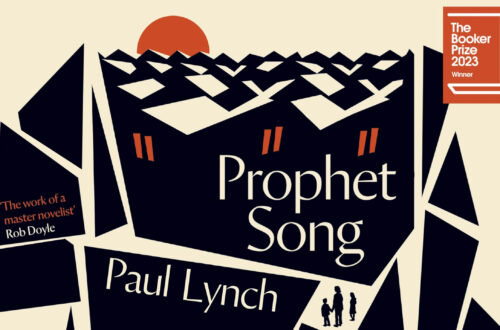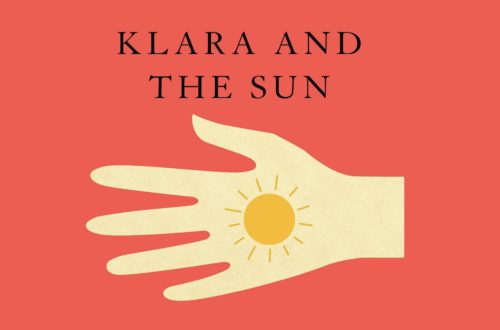
Considering Barbie (and Marriage and Singleness)
Being human can be very uncomfortable … People make up things like the patriarchy and Barbie to endure how uncomfortable it is.
Jen and I saw Barbie over the weekend. We both liked it; were both surprised by it. I thought it was funny and smart and multi-layered to a degree that I still haven’t fathomed.
The film’s reframing of sexual politics as an existential problem allows it to address deeper human questions that apply to both men and women.
I also found it surprisingly compassionate. It managed to proclaim the let’s-take-down-the-patriarchy part of its message without anger and without, as Jen put it, being preachy. Barbie’s final rejection of Ken is given with kindness. The film’s reframing of sexual politics as an existential problem (see the opening quote) allows it to address deeper human questions that apply to both men and women. What should we live for in a world that makes so many contradictory demands on us? How do we make sense of ourselves in the shadow of our mortality?
For all these reasons and more—not least it’s massive box-office success—Barbie is a cultural bombshell. The fact that it delivers its existentialist payload in a pink plastic casing just makes it more potent. I don’t know if it is true, as has been reported, that the movie has prompted huge numbers of women to break up with their boyfriends, but I would not be at all surprised. Who can blame them if Barbie has challenged them to take responsibility for their lives and reject men who offer (at best) “long-term casual no strings attached long distance” relationships?
Questions for Barbie
And yet, I have questions.
The basic question is whether the philosophy that the movie is selling actually holds water. Barbie’s ultimate exhortation to Ken is to simply be “Ken”:
You are not your girlfriend; not your house, not your mink … not the beach either. Maybe you thought that made you who you are, but it’s not really you.
Fair enough, but what does that leave? We aren’t God, sufficient unto ourselves beyond space and time; we have to commit to something outside of ourselves. To simply say “Be yourself” or “I am Kenough” is a shallow platitude.
Barbie’s more considered advice is that Ken has to go away and “find out who Ken is” for himself. She faces the same challenge. As she says to her inventor, Ruth Handler:
I’m not sure where I belong anymore. I don’t think I have an end.
Where does that leave her? Is Barbie meant to make up her own meaning or discover it within herself?[1] Her final visit to the gynaecologist might suggest the latter. But other statements to Handler point in the other direction:
I want to be with people too that create meaning—not something made up. I want to imagine. I don’t want to be the idea.
Barbie wants to live an existentially authentic life. She wants to self-create and not be defined by other people. But is that really possible? Can she actually free herself from her culture or from the vagaries of other people’s opinions, or circumstances? Can she (or anyone) have a truly free imagination? Aren’t all our life choices born of existing ideas and cultural milieus? Can Greta Gerwig (Barbie’s writer/director) really be sure that her career and ideological choices—living, as she does, in 21st century New York— are any less culturally conditioned than the lives of her forebears who embraced marriage and motherhood?
And even if that radical freedom were possible, would that be enough? Can any life-choice—traditional or modern: wife, mother, artist, judge or politician—make a life worthwhile? Surely that oft-quoted warning from David Foster Wallace still stands:
If you worship money and things, if they are where you tap real meaning in life, then you will never have enough, never feel you have enough … Worship your body and beauty and sexual allure and you will always feel ugly. And when time and age start showing, you will die a million deaths before they finally grieve you … Worship power, you will end up feeling weak and afraid, and you will need ever more power over others to numb you to your own fear. Worship your intellect, being seen as smart, you will end up feeling stupid, a fraud, always on the verge of being found out.
Existentialist happily-ever-afters are just as uncertain as those involving princes.
Wallace says that the only thing that can save us from this slavery is worshiping something that is actually divine—i.e. God. All lesser gods will “eat you alive”. At that rate, Gerwig’s decision to end the movie just as Barbie starts her journey of self discovery seems prudent. Existentialist happily-ever-afters are just as uncertain as those involving princes.
Or less certain …
Marriage & Singleness
At this point, I am aware that this is in danger of sounding a bit like one of those posts which disavow culture wars by declaring that everybody is equally wrong and that only Jesus is the answer. You know what I mean: making an idol out of your career is just as wrong as making an idol out of your marriage or family. Traditionalism is as bad as progressivism.
There is profound wisdom in that approach. It keeps us focused on the gospel and warns us against confusing that gospel with earthly social realities.
But in light of recent discussions amongst friends, there is also wisdom in warning that not all secondary life-choices are equally likely to bring happiness. Barbie is right to warn Ken not to build his life around his clothes, house or beach. But her insistence that he must discover himself on his own, apart from a girlfriend is less correct (or at least more complicated).
Let me try to explain what I mean. From a Christian perspective, neither being married nor single can give a person what really matters (see more on this here). The only husband who can truly satisfy us is Jesus, for whom all things exist (Col 1:16; John 4:13-18). According to the apostle Paul, that means single Christians have an advantage. They can live for Jesus more wholeheartedly; their loyalties aren’t divided (1Cor 7:32-35).
Paul encourages singleness out of devotion to the true Bridegroom, modern individualism rejects marriage because we have to be enough on our own.
But the biblical preference for singleness is not the same as that communicated by Gerwig’s film. In Barbie, as it (ironically) follows current intellectual fashion, romance has to be set aside lest it imply that men and (especially) women need each other to be complete. So, while Paul encourages singleness out of devotion to the true Bridegroom, modern individualism rejects marriage because we have to be enough on our own.
I think it needs to be said that this is a wrongheaded idea and, when believed by a culture, represents a recipe for sadness and loneliness.[2] Men and women need each other and are created to belong together. This creational need might be transcended through Christ; it might find a new expression through the holy relationship of brothers and sisters in the Church; it might be experienced differently by different people in different circumstances. But simply living for ourselves is a bad idea. Barbie’s sexual separatism is tragic.
What Was I Made For?
In the end, Barbie is much better at raising questions than offering answers. It does a great job of expressing the difficulty of simply knowing how to live in the modern world—especially if we are trying to manage it apart from God or a spiritual (or natural) family. But maybe Billie Eilish’s wistful endcrawl song “What was I Made For?” says it even better:
I don’t know how to feel
But I wanna try
I don’t know how to feel
But someday I might
Someday I might
Think I forgot how to be happy
Something I’m not, but something I can be
Something I wait for
Something I’m made for…
What a great place of honesty to begin. May her Maker send out many more workers into the harvest so she (and all who watch Barbie) might learn why we were made.
[1] Interestingly, these two options correspond to the two flavours of self-invention identified by Tara Isabella Burton in her recent book Self Made: the essentialist or aristocratic approach that declares some people just “have it” and the can-do anyone-can-make-it approach of America. Thanks to Steve McAlpine for recommending this book and thanks to Michael Jensen for the link to the Ramos article (“Barbie the Existentialist”).
[2] Please note, that I am not saying that being single is impossible for individual unbelievers—people have different personalities and circumstances. But I am saying that elevating individualism or sexual separatism on a societal level must inevitably (and has already) put more people in a position that they will find very difficult.




